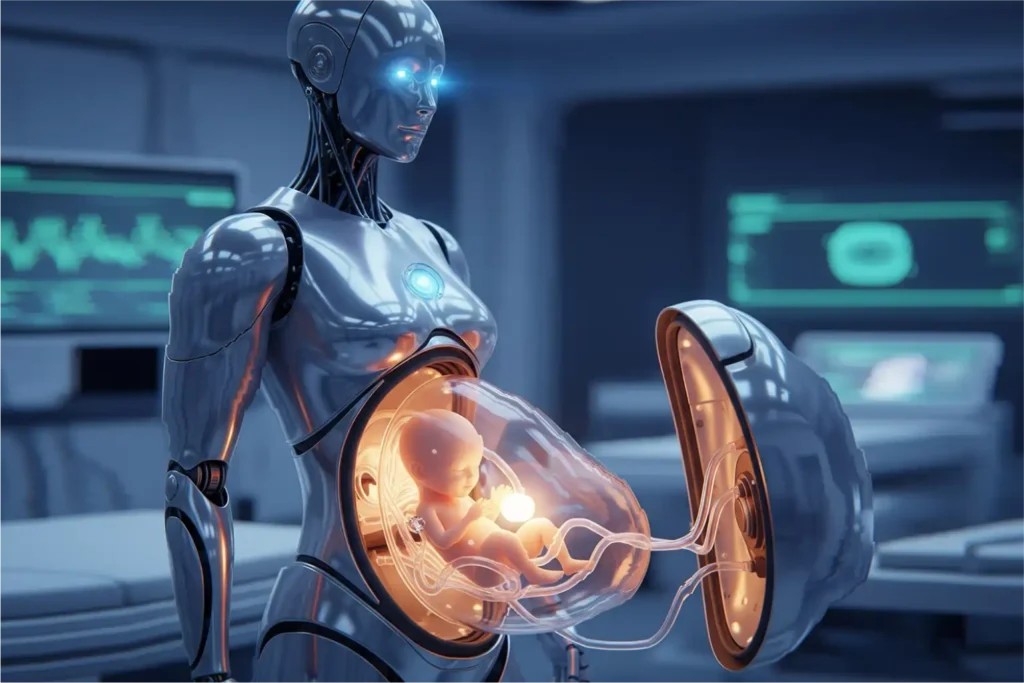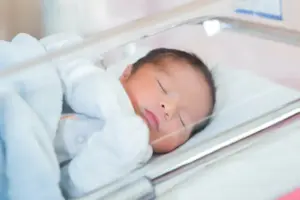
China gestation robot: A Chinese technology company is developing what it claims could become the world’s first “gestation robot”, a humanoid equipped with an artificial womb designed to carry a foetus through the entire term of pregnancy and deliver a baby.
The project, led by Kaiwa Technology in Guangzhou, was unveiled at the 2025 World Robot Conference in Beijing by founder Zhang Qifeng, who is also affiliated with Nanyang Technological University. According to Chinese media reports, the company hopes to debut the device by 2026 at a price below 100,000 yuan (around $13,900).
Also Read | Drones, sprays, and fines: China’s war on chikungunya in Guangdong
Unlike existing artificial womb prototypes that act more like neonatal incubators, Kaiwa’s concept involves a life-sized humanoid with a built-in artificial womb that replicates natural gestation. A foetus would develop in artificial amniotic fluid and receive nutrients through a hose, mimicking conditions inside the human body. Zhang said the technology has already been proven in laboratory settings and now needs to be integrated into a humanoid form, allowing human–robot interaction during pregnancy.
The proposal has sparked debate in China, with some hailing it as a potential breakthrough for infertility treatment, while others have raised ethical and legal concerns. Zhang said discussions with authorities in Guangdong Province are already underway, with proposals submitted as part of policy and legislative reviews.
Artificial wombs have shown progress in animal studies. In 2017, researchers at the Children’s Hospital of Philadelphia sustained a premature lamb, equivalent to 23 weeks of human gestation, in a “biobag” filled with artificial amniotic fluid, enabling it to grow and develop over several weeks. However, experts note that supporting fertilisation, implantation and full-term pregnancy in an artificial system remains an enormous scientific and ethical challenge.
(Source: MSN)








